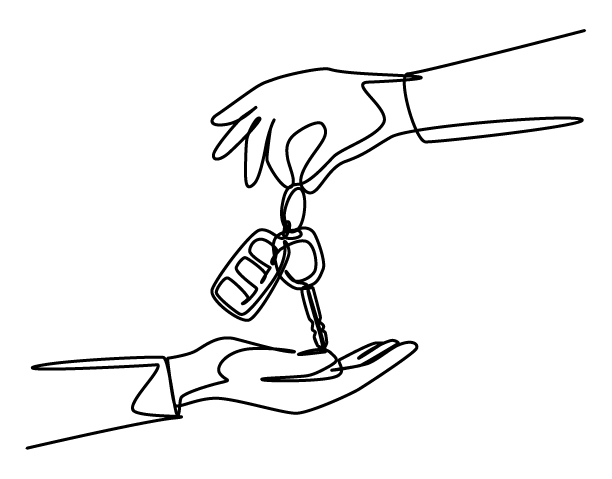Yes, you can sell a car on behalf of someone else, whether that’s a family member, a friend, or a company, so long as you are authorised to do so.
Better yet, the process is fairly straightforward if you’ve paid off any outstanding finance on the car.
In this guide, we’ll explain how to sell a car on behalf of someone else. We’ll cover everything you need to obtain from the car’s owner – and the documentation and details required to complete the sale.
Get a free valuation
How to sell a car on behalf of someone else
The first step is to obtain written permission from the owner. The simplest way to do this is to request a ‘letter of intent’. This letter should include:
-
The car’s details (e.g. the registration number, make and model).
-
The names, addresses and signatures of you and the owner.
-
A statement confirming that the owner is legally allowed to sell the car.
-
A statement that the owner has authorised you to sell the car on their behalf.

What documentation is required?
If you are selling a car to webuyanycar on behalf of someone else, you will need to provide the following documentation at your appointment:
-
Original identification (passport or driving licence) for both you and the owner.
-
A utility bill matching the address on the V5C logbook).
-
The V5C logbook (to transfer ownership of the car and inform the DVLA). Whilst it is technically possible to sell a car without a V5C, this will greatly reduce its value.
-
The owner’s bank details, as the payment will go straight to them.
-
Proof of account details for the owner (bank statement or paying in book).
You should also make sure you have both sets of keys (if available) and any accessories such as the wheel locking nut.
Important: If the owner wishes to retain their private number plate, they will need to apply to take the plate off the car - and obtain a number plate retention certificate (V778) before selling it.
What documents might other sellers ask to see?
If you are selling the car privately, prospective buyers may ask to see further documentation, such as:
-
The warranty documents, if the vehicle is still under warranty.
-
The owner’s manual.
-
The insurance documents, if the owner has previously made a claim.
-
The car’s service history and paperwork for any repairs carried out.
You should also obtain proof of deposit and purchase receipts, if the buyer isn’t paying the full amount immediately.


